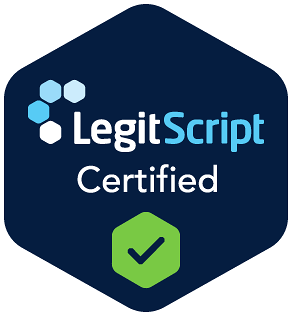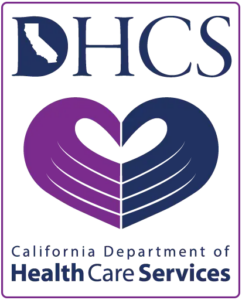California offers specialized treatment programs for individuals struggling with party drug addiction, including substances such as MDMA, ecstasy, ketamine, and cocaine. These programs often combine medically supervised detox with behavioral therapies such as cognitive-behavioral therapy (CBT) and dialectical behavior therapy (DBT). Treatment also targets underlying mental health conditions, providing dual diagnosis support to address both addiction and co-occurring disorders.

At Surf City Detox in Huntington Beach, California, we offer evidence-based and holistic care in a supportive, structured environment. Clients benefit from personalized plans that may include nutrition counseling, mindfulness practices, and relapse prevention strategies. With both inpatient and outpatient options, California remains a leader in compassionate, effective addiction recovery services.
- Medically supervised detox to manage withdrawal symptoms and stabilize patients safely
- Behavioral therapies: Addiction counseling, such as cognitive behavioral therapy (CBT) and dialectical behavior therapy (DBT), is used to address addictive patterns.
- Dual diagnosis treatment: Treatment for co-occurring mental health conditions, such as addiction and anxiety disorders, or addiction and depression, requires an integrated care approach.
- Holistic care: Holistic therapy includes yoga, meditation, and nutritional counseling to strengthen emotional and physical resilience
- Aftercare planning: Treatment doesn’t just end when someone completes their program. A continuum of care is essential to remain on the path of sobriety. An aftercare program combined with relapse prevention strategies and peer support systems has proven to promote optimal recovery outcomes.
Facilities throughout California offer both residential and outpatient options, making treatment accessible and effective for diverse needs and lifestyles.
What are Party Drugs?
Common party drugs include MDMA (ecstasy), cocaine, ketamine, LSD, GHB, and methamphetamine. They can be stimulants, depressants, or hallucinogens, often used to heighten sociability, reduce inhibitions, or intensify sensory experiences. However, chronic use can lead to serious physical and psychological complications such as anxiety, depression, and memory loss. Many of these substances are illegal and unregulated, increasing the danger of contaminated or misrepresented doses.
Treatment for party drug addiction typically involves medical detox, behavioral therapies like CBT and DBT, and holistic approaches aimed at restoring balance and coping skills. Early intervention improves outcomes and reduces long-term harm.
Here’s a quick comparison:
| Drug | Type | Effects | Risks |
| MDMA (Ecstasy) | Stimulant | Euphoria, empathy, energy boost | Dehydration, serotonin depletion |
| Cocaine | Stimulant | Intense energy, alertness | Heart issues, addiction |
| Ketamine | Dissociative | Detachment, hallucination | Memory loss, dependency |
| LSD | Hallucinogen | Altered perception, vivid visuals | Anxiety, psychosis |
| GHB | Depressant | Relaxation, sociability | Overdose, unconsciousness |
| Methamphetamine | Stimulant | Hyperactivity, confidence | Severe addiction, brain damage |
Types of Party Drugs
Party drugs can be grouped into four main categories: stimulants, depressants, dissociatives, and hallucinogens. Effective treatment often involves medically monitored detoxification, evidence-based behavioral therapy, and integrated care for co-occurring disorders like anxiety or depression.
Here’s a quick breakdown:
| Drug Name | Category | Common Effects | Primary Risks |
| MDMA (Ecstasy) | Stimulant | Euphoria, emotional warmth | Dehydration, anxiety, and memory issues |
| Ketamine | Dissociative | Detachment, hallucinations | Dependence, confusion, urinary issues |
| Cocaine | Stimulant | Intense energy, alertness | Heart problems, severe addiction |
| GHB | Depressant | Relaxation, lowered inhibitions | Respiratory failure, unconsciousness |
| LSD | Hallucinogen | Altered perception, visuals | Psychosis, flashbacks |
| Methamphetamine | Stimulant | Confidence, hyperactivity | Severe addiction, brain damage |

Common Hallucinogens Abused
Here are some frequently misused hallucinogens:
- LSD (Lysergic acid diethylamide): Produces vivid visuals and altered thought patterns; linked to flashbacks and long-term anxiety
- Psilocybin (Magic Mushrooms): Causes sensory distortion and euphoria; risk of confusion, nausea, and paranoia
- Mescaline: Derived from peyote cactus; induces color enhancement and emotional shifts, with possible anxiety and nausea
- PCP (Phencyclidine): Originally developed as an anesthetic; can cause aggressive behavior, detachment, and hallucinations
- Ketamine: Often misused in clubs; leads to dissociation and dreamlike states, with risks of memory loss and dependency
Understanding these substances is essential for prevention and early intervention. Let me know if you’d like content on treatment strategies or detox options!
Signs and Symptoms of Opioid Addiction
Withdrawal symptoms and cravings intensify over time, making it difficult to stop without professional help. Early recognition of these signs is crucial for timely intervention and treatment. Here’s a breakdown of common signs and symptoms of party drug abuse:
- Behavioral: Secrecy, isolation, financial issues, legal trouble, risky social behavior
- Physical: Weight changes, poor hygiene, dilated pupils, tremors, sleep disturbances
- Psychological: Anxiety, depression, paranoia, hallucinations, impaired judgment
- Social: Shift in peer groups, frequent club or rave attendance, withdrawal from family
- Cognitive: Memory loss, confusion, difficulty concentrating
The Dangers of Party Drugs
Here are the key dangers associated with party drug use:
- Overdose risk: Especially when mixing substances or consuming unknown dosages
- Mental health effects – Anxiety, depression, paranoia, and long-term cognitive impairment
- Physical complications: Dehydration, heart failure, seizures, and organ damage
- Behavioral risks: Impaired judgment, risky sexual behavior, and legal consequences
- Addiction potential: Repeated use can lead to dependency and withdrawal symptoms
Early intervention and education are crucial in preventing long-term harm.
Reducing Overdose Risk
Key strategies include distributing naloxone, promoting fentanyl test strips, and expanding access to medication-assisted treatment (MAT). Public health campaigns also aim to reduce stigma and encourage early intervention. Supportive environments and peer-based programs can significantly improve outcomes.
Here’s a breakdown of effective overdose prevention methods:
- Naloxone distribution: Provides life-saving reversal for opioid overdoses.
- Fentanyl test strips: Detect the presence of fentanyl in drugs to prevent accidental overdose.
- Medication-assisted treatment (MAT): Combines medications like buprenorphine with counseling for long-term recovery.
- Peer support programs: Offer guidance and emotional support from individuals with lived experience.
- Education and awareness: Informs communities about risks, signs, and response techniques.

Treatment and Support for Party Drug Addiction
Surf City Detox offers specialized levels of care for party drug addiction, combining evidence-based residential treatment with holistic support.
Key components of treatment include:
- Medical Detox: Safe withdrawal management under 24/7 supervision
- Behavioral Therapy: CBT and DBT to reshape thought patterns and reduce relapse risk
- Dual Diagnosis Care – Integrated treatment for co-occurring mental health conditions
- Peer Support Groups – Community-based recovery through shared experience
- Aftercare Planning – Relapse prevention, sober living, and ongoing counseling
Recovery is Possible at Surf City Detox
Our dedicated clinical team comprises licensed professionals specializing in addiction medicine, mental health, and holistic therapies. They work collaboratively to create tailored treatment plans that address both substance use and co-occurring disorders.
If you or a loved one is ready to take the first step, we’re here to help. Contact us to speak with an admissions specialist, verify insurance, or schedule a confidential consultation. At Surf City Detox, healing begins with hope, and hope starts with connection.
Surf City Detox Accepts Insurance
We accept many insurance plans to help cover the cost of addiction treatment. Contact your provider to get more information or call our office to reach an intake specialist.

